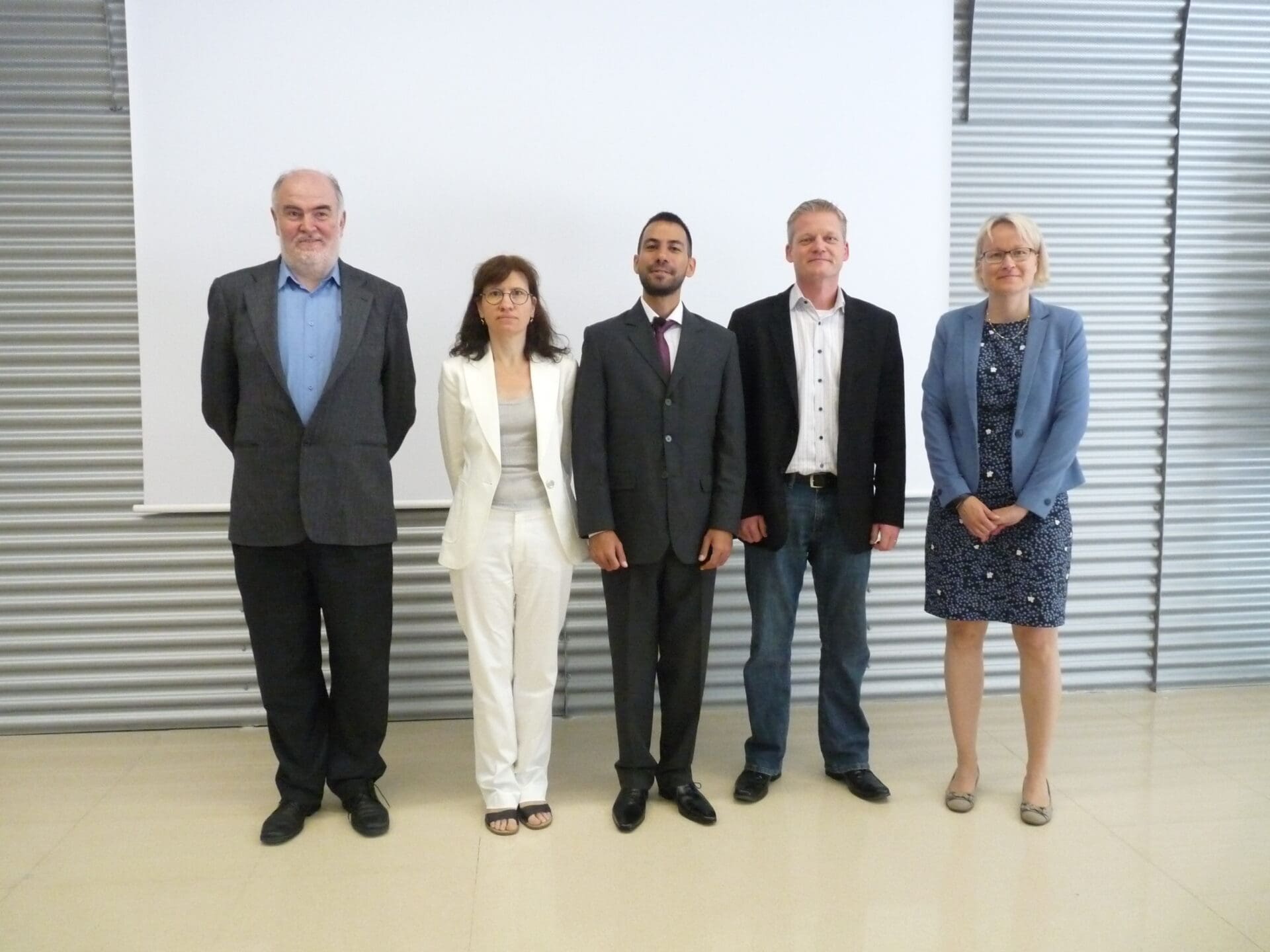Congratulations Dr. García-Muelas!
Rodrigo García-Muelas, PhD student under the supervision of Prof. Núria López (ICIQ), has defended his PhD Thesis entitled
“Theoretical Studies of Chemical Processes for Biomass Conversion on Metal Catalysts” (assigned to the Physical and Inorganic Chemistry Department of the Universitat Rovira i Virgili) publicly on September 18th at the ICIQ Auditorium.
The members of the evaluation committee were: Prof. Feliu Maseras (ICIQ), Prof. Karoliina Honkala (University of Jyväskylä, Finnland) and Prof. Frank Abild Pedersen ((SLAC National Accelerator Laboratory / Stanford University, USA)
Abstract
This thesis focuses in the study of the adsorption and reactivity of mono- and poly-alcohols derived from non-edible biomass on metal surfaces. The behaviour of the metal-water interface, as well as the effect of solvation and coadsorbed molecules in the reaction paths, are also considered. The thermodynamic and kinetic parameters are obtained from Density Functional Theory (DFT) calculations, and the rationalization of the results is based in microkinetic modeling, linear scaling relationships, and statistical analyses among other tools. It was found that inter- and intra-molecular hydrogen bonds are fundamental to retrieve the experimental adsorption energies and reaction paths. Besides, the carbon tails interact with the surface via van der Waals. Regarding reactivity, the microkinetics of autothermal, steam, and aqueous-phase reforming can be described from the same reaction dataset than the decomposition of pure alcohols. The reliability of the predictions hold even when linear-scaling relationships or solvation models are used. Finally, the reaction path for the conversion of acetol to pyruvaldehyde is elucidated. This is part of a promising route to upgrade glycerol into lactic acid. These results pave the way for the rational design of new active, selective, and stable catalysts, needed to develop a sustainable chemical industry based on renewable raw materials. All computed values were stored in an open database, ioChem-BD, to foster discussions and reusability of the data.
Related news

Let's create a brighter future
Join our team to work with renowned researchers, tackle groundbreaking
projects and contribute to meaningful scientific advancements







 20-12-2024
20-12-2024 


















